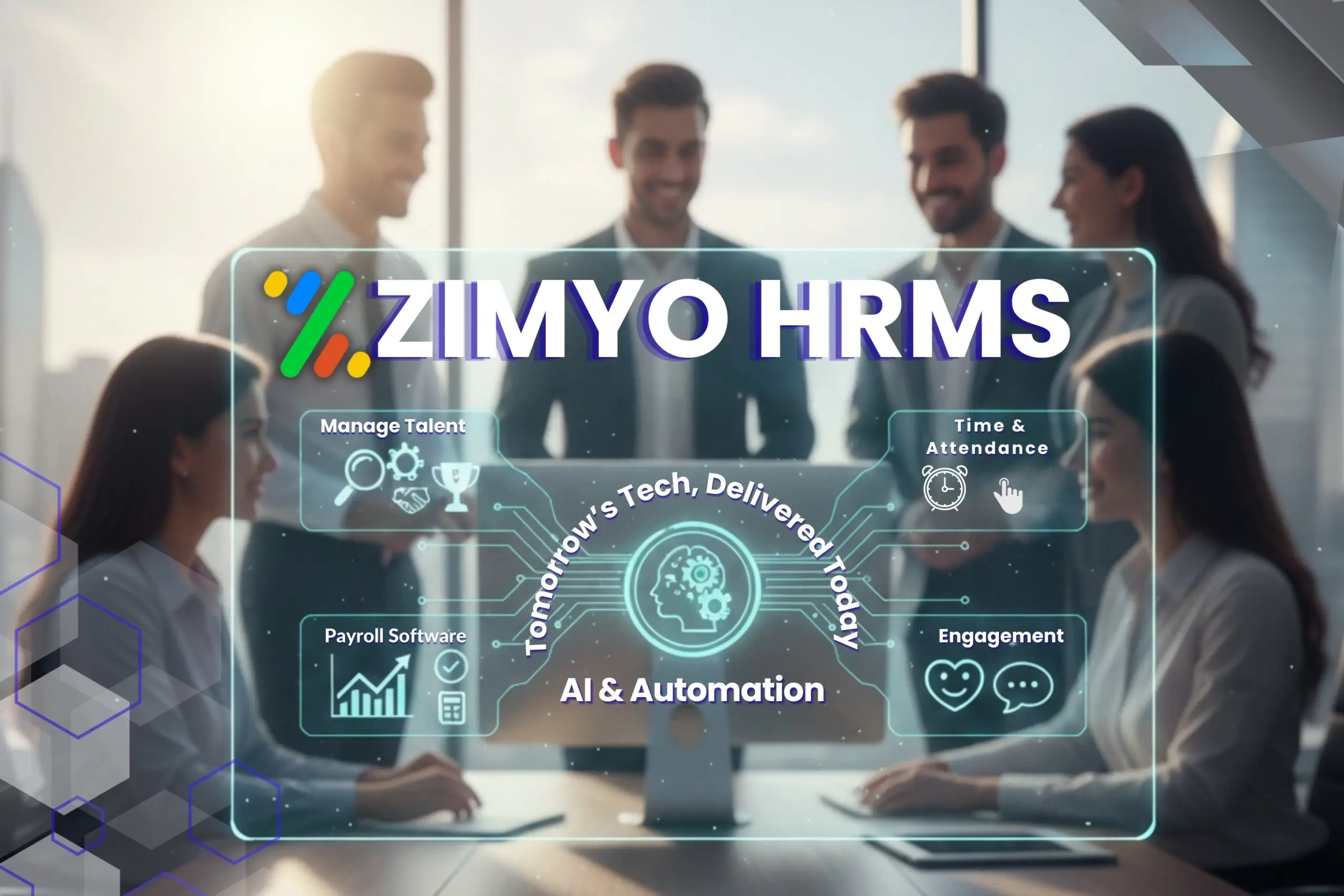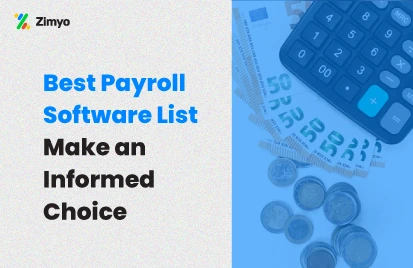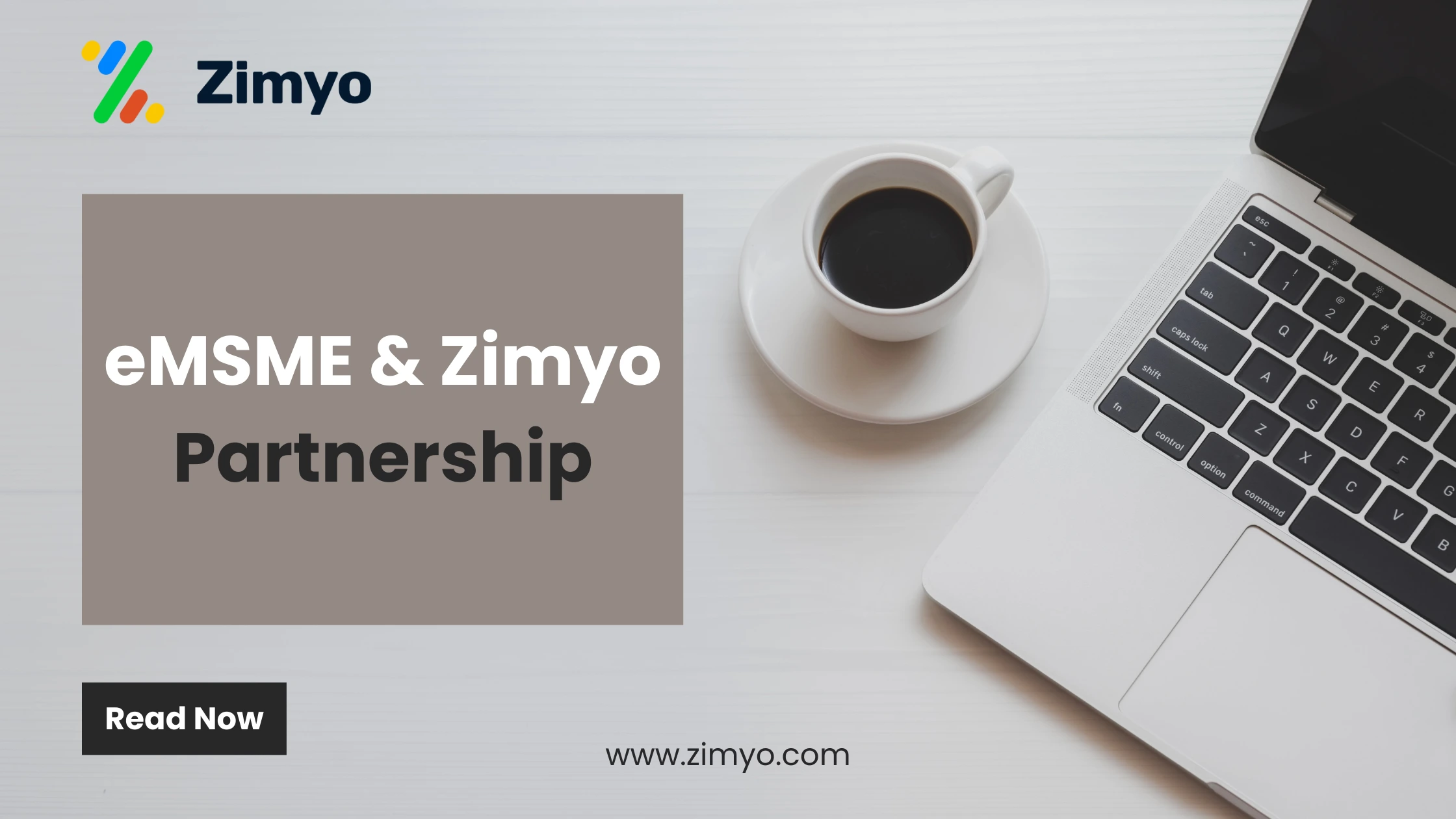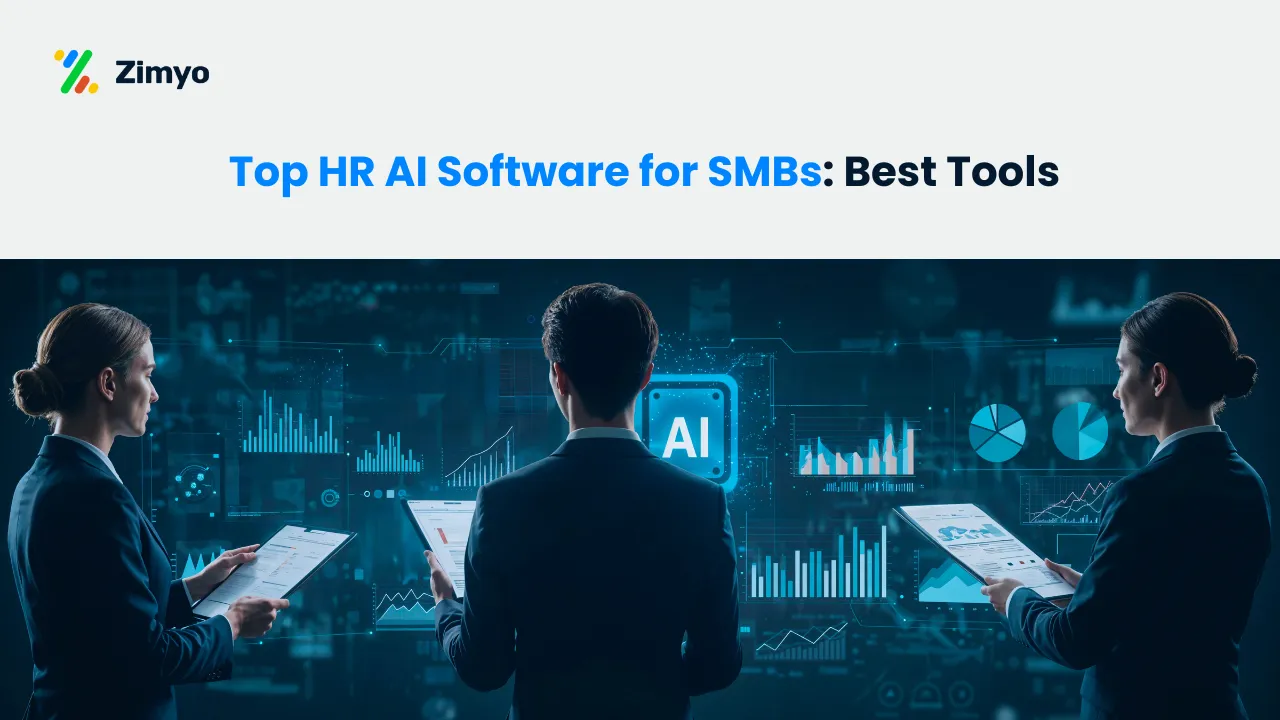Running a business used to be hard, especially when it came to HR. Tracking attendance, paying salaries, hiring the right people, and keeping employees happy felt like a never-ending maze. Mistakes happened, work slowed down, and growing the business was tough.
Then Cloud HR Software changed everything. Businesses could now manage attendance, payroll, performance, and more, all in one place, anytime and anywhere. Startups could handle HR without hiring a big team, and large companies could grow without losing control.
In this blog, we will explore the Best Cloud HR Software. From Zimyo, which offers an all-in-one platform, to well-known tools like Workday and BambooHR, we’ll see what makes them special and how they help businesses, big or small, work faster and smarter.
If you want to know which Cloud Based HR Software can make HR simple and efficient, this guide will show you the top options and the benefits they bring to modern workplaces.
List of the 11 Best Cloud HR Software
Here is the list of the 11 Best Cloud HR Software:
- Zimyo
- Workday
- BambooHR
- ADP Workforce Now
- Zenefits
- Gusto
- UKG Pro (Ultimate Kronos Group)
- Paycor
- Namely
- Rippling
- Zoho People
Now, let us throw light on each of these Cloud HR Software in detail.
11 Best Cloud HR Software: Explained in Detail
1. Zimyo
Zimyo is a cloud-HRMS software company founded in India, now expanding to many countries. It offers an all-in-one solution for HR. Zimyo is considered among the Best Cloud HR Software because it bundles attendance, payroll, recruitment, performance, learning & more into one platform. It is used by startups, small business, and bigger firms alike, making it one of the Best HR Software for Startups as well as Best HR Software for Enterprises.
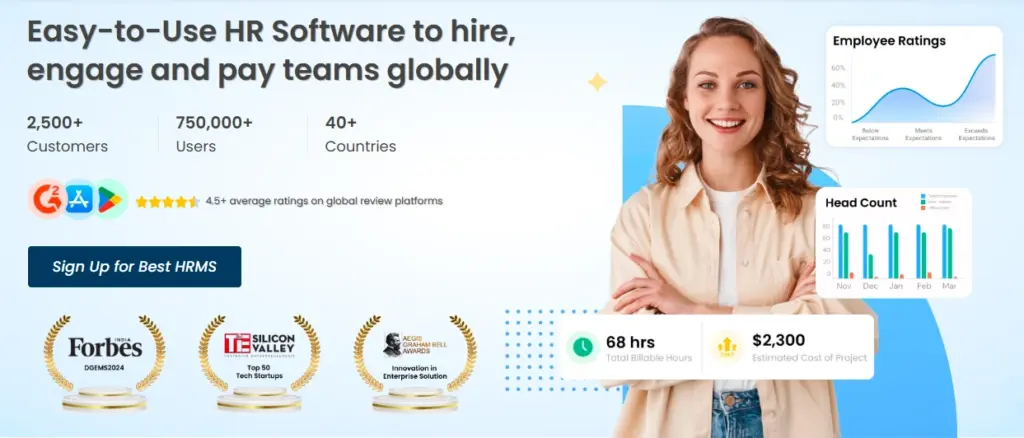
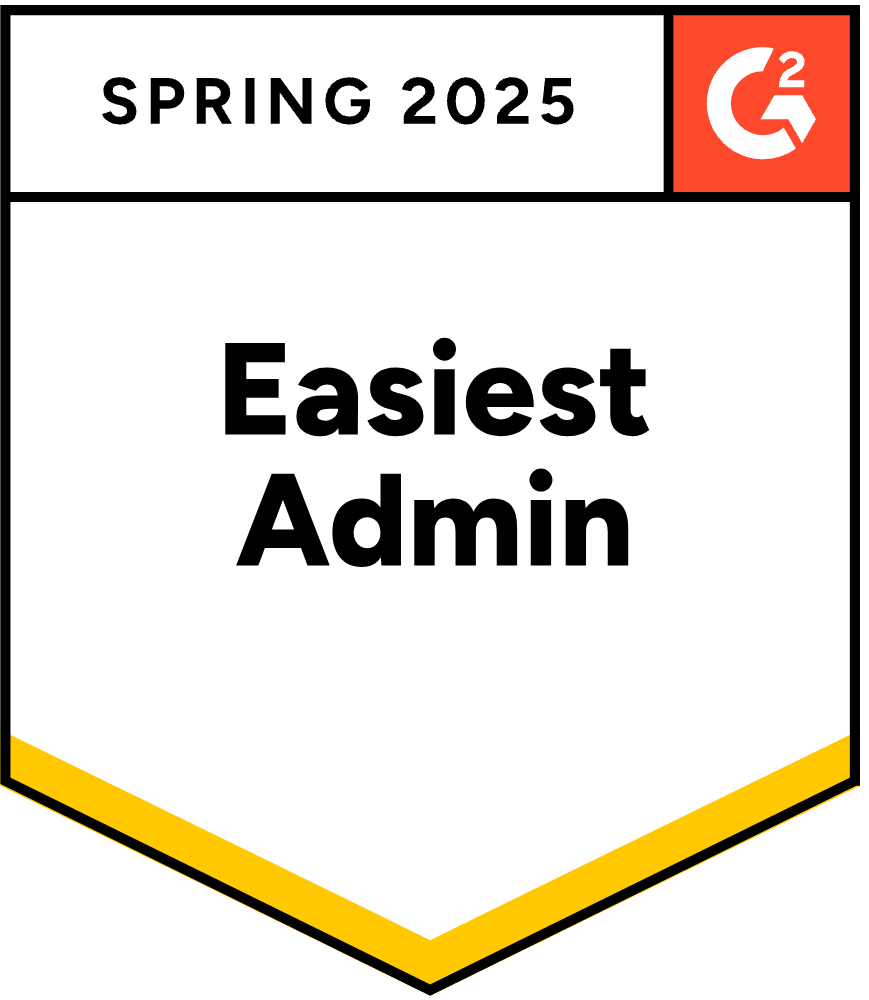
Uniquely Different Features
- Over 40+ modules including Time & Attendance, Leave management, Payroll, Recruitment & Onboarding, Performance, Employee Engagement.
- Biometric, facial recognition, GPS, and geo-fencing based attendance with offline clock-in options.
- Employee self-service portal with a mobile-first design (Android/iOS).
- Workflow configuration for HR events like leave, short leave, work from home, etc.
- Analytics and dashboards that show attendance, performance, headcount, payroll, and more.
Pros and Cons
Pros | Cons |
Strong Cloud HRMS Solutions – many modules in one platform | Many features can feel overwhelming; needs proper training |
Good HR Software Tools in USA style usability & mobile support | Mobile app lacks some advanced features compared to desktop |
Lets companies scale – works for small business to larger firms | Pricing may be high for very small teams when advanced modules are added |
Automated compliance, easy payroll, attendance policies, etc. | Some users report that dashboards or attendance punch mechanisms can lag at high usage |
With Zimyo, companies get a Cloud Based HRMS Software that works both for remote teams and on-site, combining many HR functions under one roof. It is one of the Best HR Management Software USA-type solutions, especially for those wanting modern, scalable, and employee-friendly HR tools.
2. Workday
Workday started in 2005 and quickly became one of the Top Cloud HR Software in the world. Known as one of the Top HRMS Companies in USA, it offers Cloud HRMS Solutions for enterprises with a focus on payroll, HR, and financial management.
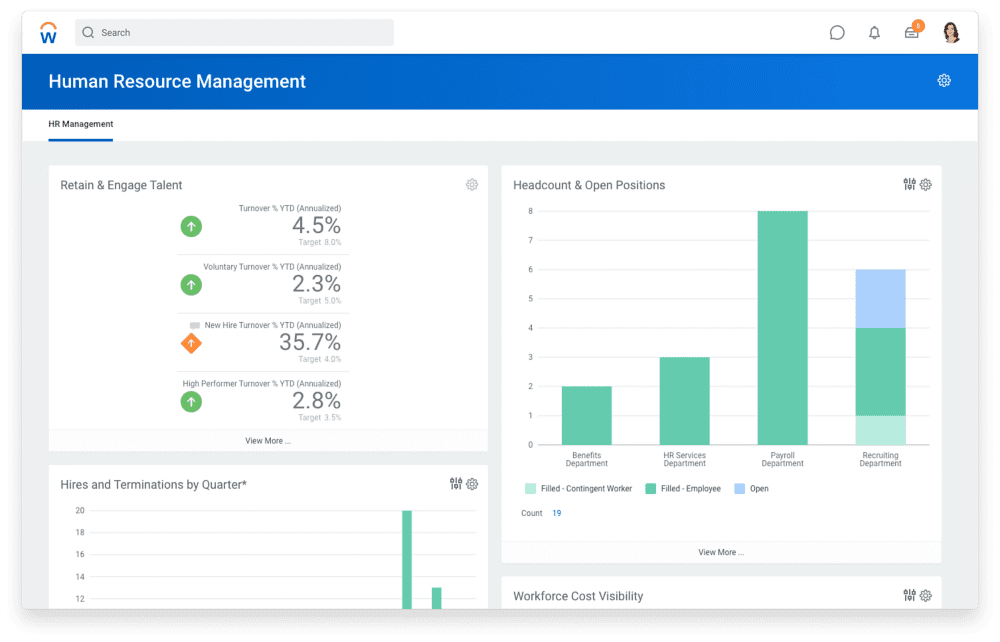
Uniquely Different Features
- AI-driven talent insights.
- Workforce planning and analytics built-in.
- Strong integrations for finance + HR in one platform.
Pros and Cons
Pros | Cons |
Great for large enterprises | Expensive for small businesses |
Powerful analytics tools | Complex to implement |
Reliable cloud-based HRMS software | Requires strong IT support |
3. BambooHR
Founded in 2008, BambooHR is one of the most popular HR Software for Small Business. It is an Online HR Software USA that focuses on simplicity and employee experience.
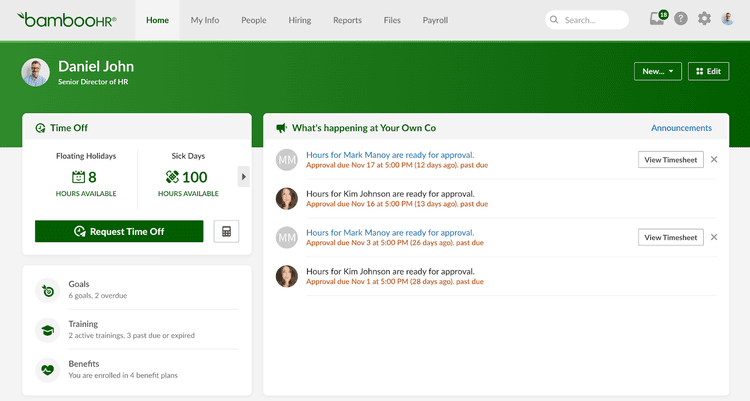
Uniquely Different Features
- Easy-to-use dashboard.
- Employee self-service and mobile app.
- Strong focus on performance management.
Pros and Cons
Pros | Cons |
Simple interface | Limited payroll in some regions |
Affordable pricing for startups | Not ideal for large enterprises |
Great support and onboarding tools | Fewer advanced features than others |
4. ADP Workforce Now
ADP is one of the oldest HR Tech Companies in USA, founded in 1949. Also, ADP Workforce Now is their Cloud Based HR Software designed for mid-to-large companies.
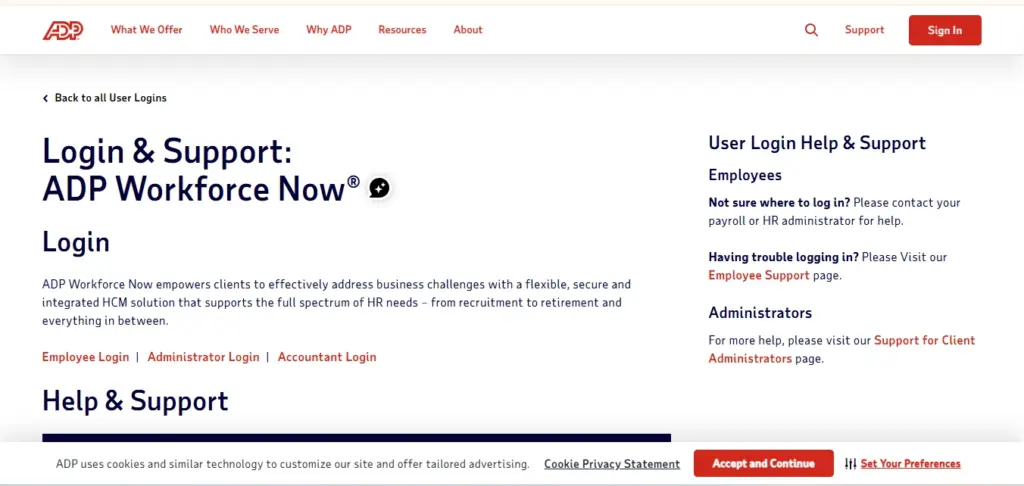
Uniquely Different Features
- Payroll + HR bundled together.
- Compliance management for U.S. labor laws.
- Industry-specific HR solutions.
Pros and Cons
Pros | Cons |
Trusted brand in payroll | Higher cost for small teams |
Scalable HR software for enterprises | Interface can feel old |
Excellent compliance tools | Setup can take time |
5. Zenefits
Zenefits began in 2013 and became well-known for offering all-in-one Cloud Based HR Tools at a reasonable cost. It is a strong choice for Best HR Software for Startups.
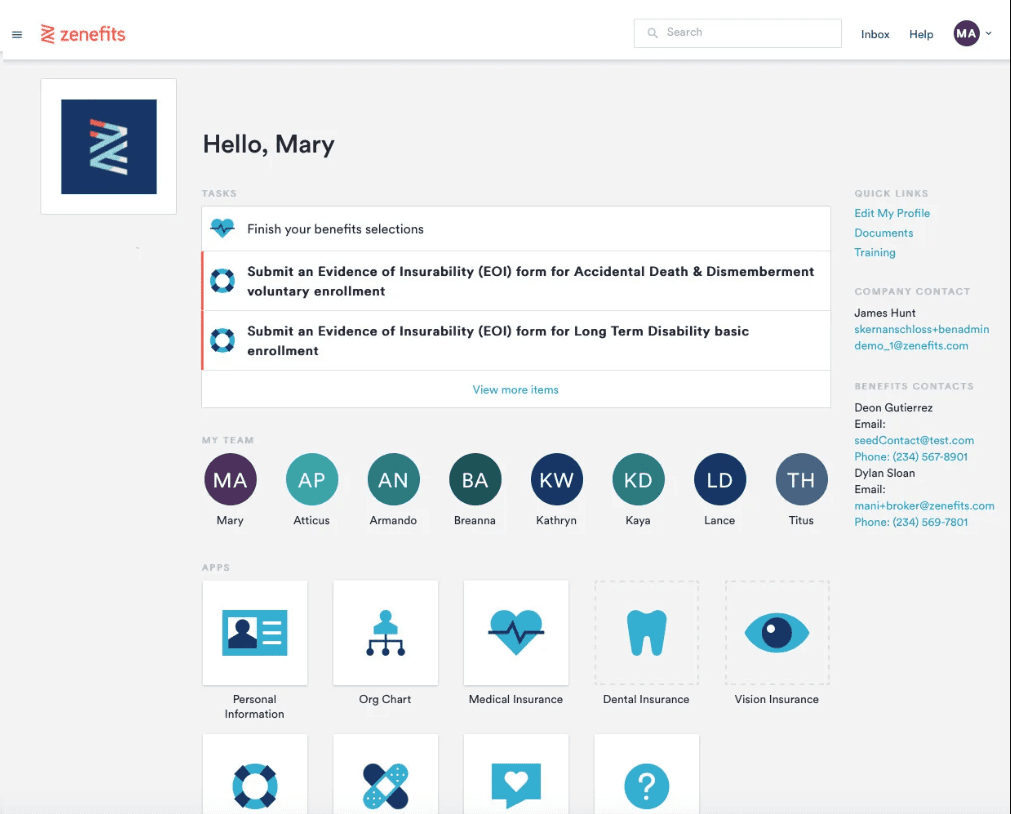
Uniquely Different Features
- Benefits management simplified.
- Automated compliance tracking.
- Flexible integrations with payroll and accounting tools.
Pros and Cons
Pros | Cons |
Budget-friendly cloud HR solutions for businesses | Customer service can be slow |
Strong benefits management | Limited customization |
Easy onboarding for startups | Advanced features cost more |
6. Gusto
Launched in 2011, Gusto is widely known as the Best HR Software in USA for payroll and benefits. It serves startups and SMBs looking for Cloud HR Software for Remote Teams.
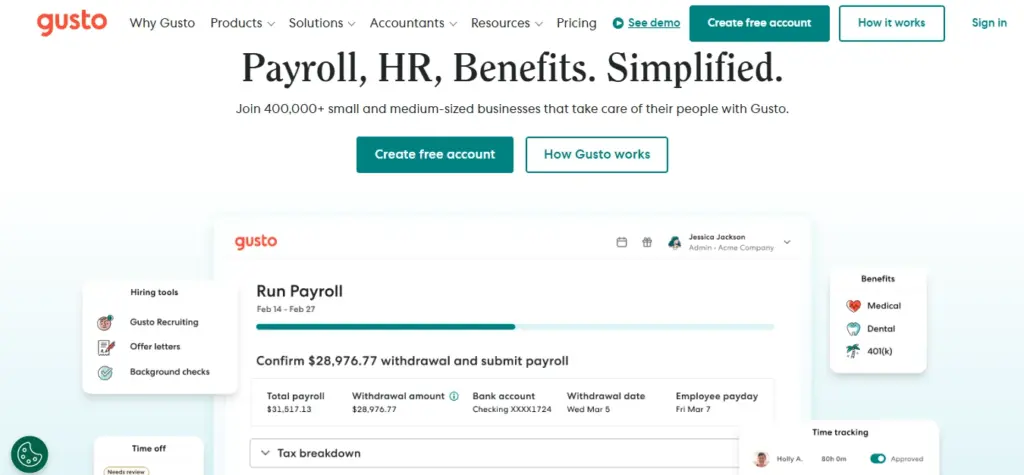
Uniquely Different Features
- Payroll with automatic tax filings.
- Employee benefits administration.
- Remote team support.
Pros and Cons
Pros | Cons |
Perfect for startups and small businesses | Not ideal for very large enterprises |
Affordable with great payroll features | Limited advanced HR analytics |
Easy to use for HR beginners | Benefits tied to certain states |
7. UKG Pro (Ultimate Kronos Group)
UKG was formed after Ultimate Software and Kronos merged in 2020. It is one of the Best HRMS Software in USA for large enterprises.
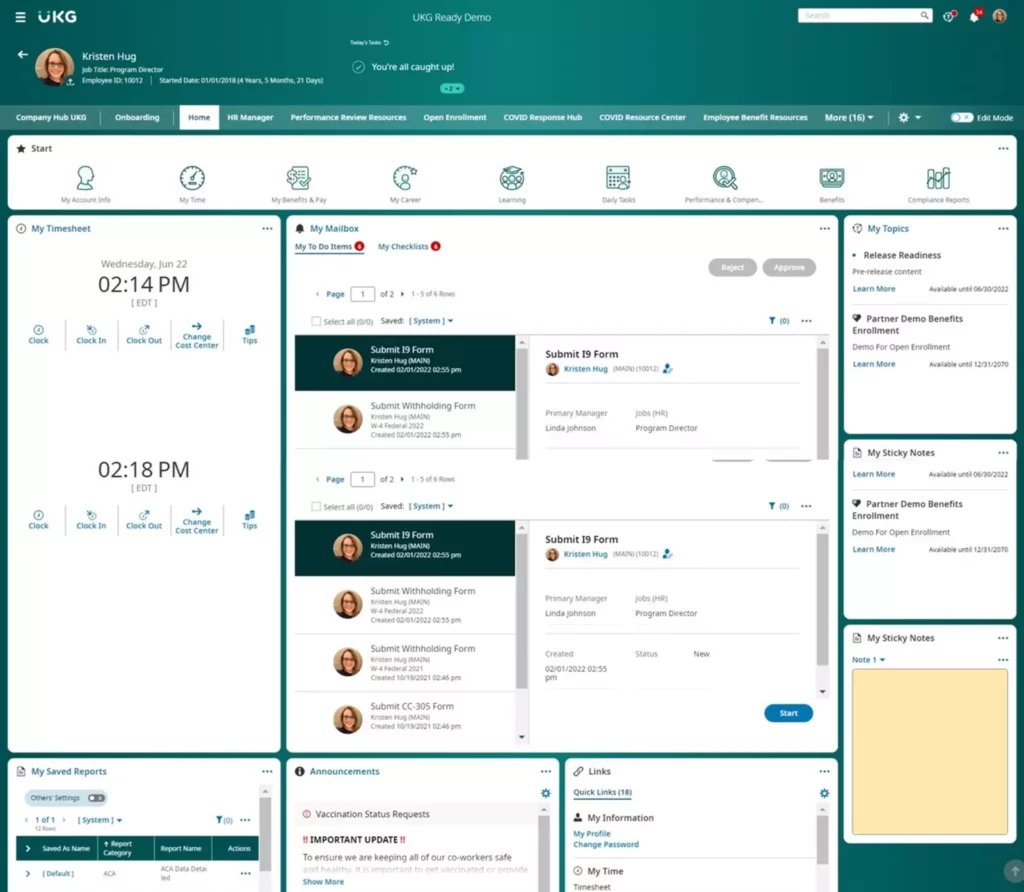
Uniquely Different Features
- Strong workforce management.
- AI-driven people analytics.
- Global HR support.
Pros and Cons
Pros | Cons |
Excellent for large enterprises | Expensive for small companies |
Advanced analytics | Can feel complex |
Covers HR globally | Implementation takes time |
8. Paycor
Paycor has been serving HR teams for over 30 years and is a trusted Human Resource Software USA solution. It’s often seen as one of the Best HR Management Software USA for mid-sized companies.
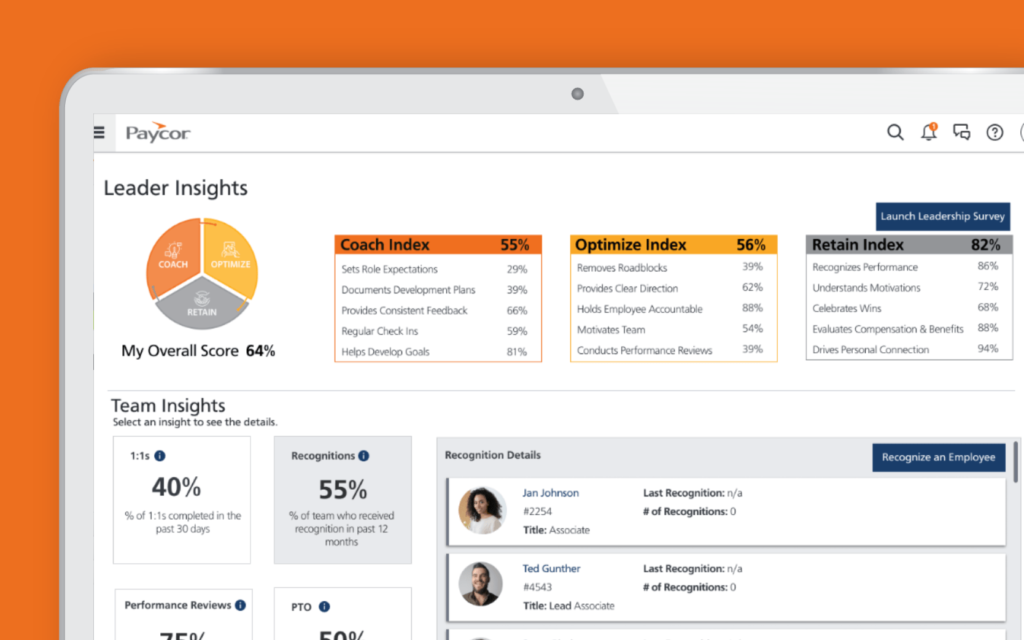
Uniquely Different Features
- Leader dashboards for insights.
- Recruiting + onboarding tools.
- Payroll and tax compliance.
Pros and Cons
Pros | Cons |
Great for compliance and payroll | May not suit very small startups |
Easy recruiting tools | Interface needs modernization |
Affordable for mid-sized businesses | Support response times vary |
9. Namely
Namely launched in 2012 as a Cloud Based HRMS Software tailored for mid-sized businesses. It offers both HR and payroll in one platform.
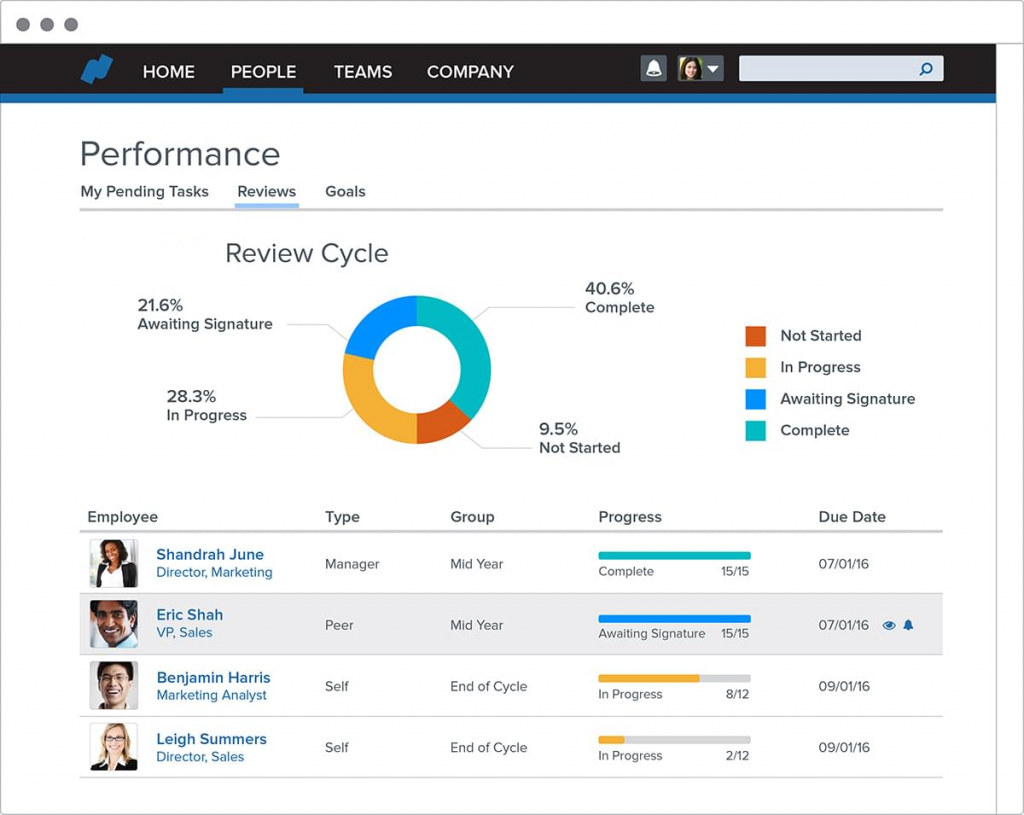
Uniquely Different Features
- Personalized employee portal.
- Built-in performance management.
- Custom reporting tools.
Pros and Cons
Pros | Cons |
Tailored for mid-sized companies | Not suitable for very small startups |
Strong HR + payroll mix | Can feel limited compared to enterprise tools |
Great employee self-service | Some features cost extra |
10. Rippling
Rippling is a new player (founded in 2016) but quickly became one of the Top Cloud HR Software. It combines IT + HR into a single Cloud HR Solutions for Businesses.
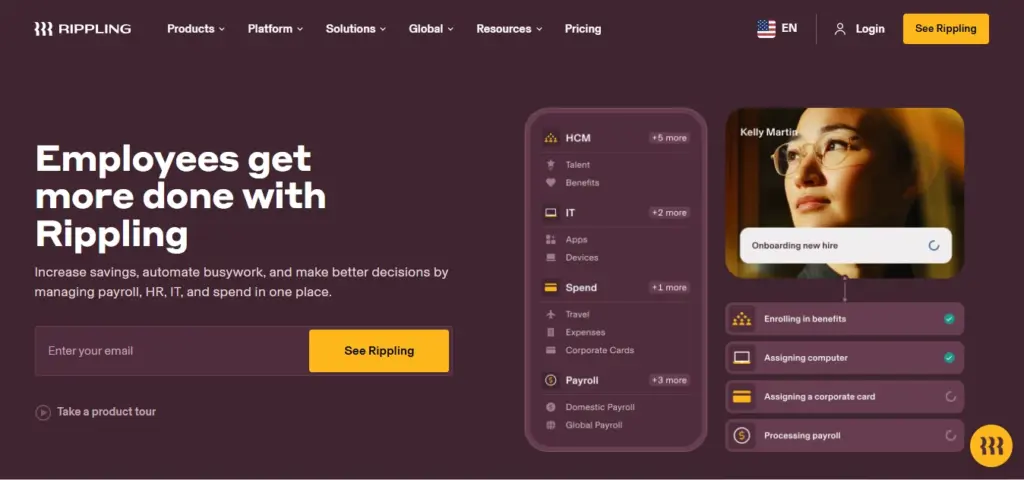
Uniquely Different Features
- HR and IT integration (manage laptops, apps).
- Automates global payroll.
- Very fast setup.
Pros and Cons
Pros | Cons |
All-in-one HR + IT management | Can be pricey as you scale |
Great for remote teams worldwide | Still a newer player |
Extremely fast onboarding | Some features only available in higher plans |
11. Zoho People
Zoho People is part of the Zoho Suite, launched in 1996. It is one of the Best Human Resource Software for startups and SMEs.
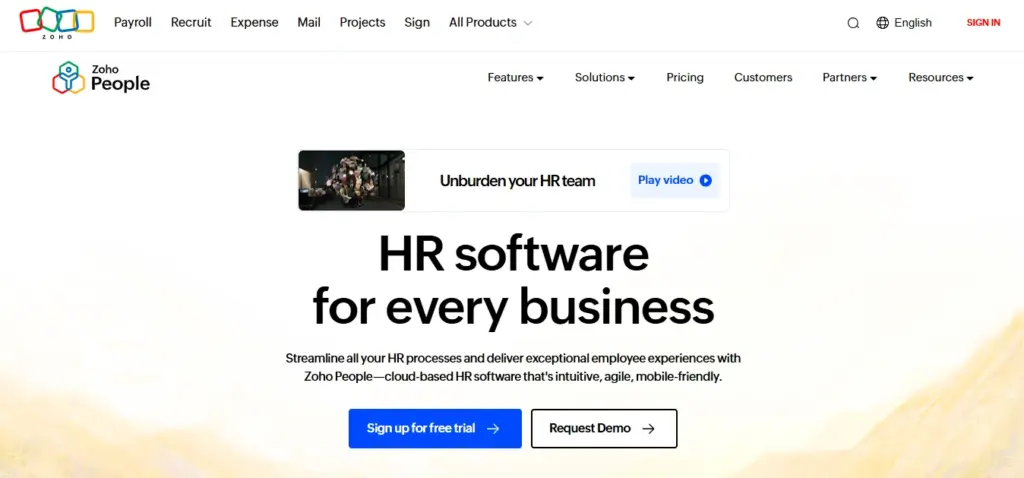
Uniquely Different Features
- Time tracking and attendance tools.
- Integration with Zoho’s CRM and apps.
- Cloud based HR software with simple UI.
Pros and Cons
Pros | Cons |
Very affordable HR software tools in USA | Limited payroll for US users |
Great for small startups | Not ideal for enterprises |
Easy to integrate with other Zoho apps | Less advanced analytics |
Advantages of using Cloud HR Software for organizations
Here are the advantages of using Cloud HR Software for organizations:
- Cost Savings – No heavy hardware or IT setup needed; Cloud Based HR Software runs online, reducing expenses.
- Scalability – Whether for startups or enterprises, Cloud HRMS Solutions grow with your business.
- Easy Access Anywhere – Employees and HR can log in anytime, making it perfect as Cloud HR Software for Remote Teams.
- Automatic Updates – The provider manages upgrades, so organizations always use the latest Cloud Based HR Tools.
- Better Data Security – Modern Online HR Software USA uses encryption and compliance checks to keep data safe.
- Faster Implementation – Compared to on-premise tools, Cloud Based HRMS Software can be set up quickly.
- Integration Ready – Works well with payroll, attendance, recruitment, and performance systems, giving a complete Human Resource Software USA experience.
- Improved Employee Engagement – With self-service portals, staff can manage leaves, payroll slips, and profiles easily.
In short, Best Cloud HR Software helps organizations save costs, work faster, and keep their teams connected from anywhere.
How to Choose the Best Cloud HR Software?
Here’s a simple, step-by-step guide for choosing the best Cloud HR Software, with examples:
Step 1: Identify Your HR Needs
- List the HR tasks your company does every day: payroll, attendance, recruitment, performance reviews, employee engagement, etc.
- Example: If you are a small startup, payroll and attendance might be most important. If you are a large company, you may also need performance management and analytics.
Step 2: Check the Features
- Look for software that covers the tasks you need. Don’t pay for extra features you won’t use.
- Example: Zimyo has 40+ modules for everything, while BambooHR focuses on simple HR tools for small businesses.
Step 3: Consider Ease of Use
- Choose software that is easy for your HR team and employees to use. Mobile apps and simple dashboards help a lot.
- Example: Gusto is very simple and easy for small teams, while Workday is powerful but can be complex.
Step 4: Look at Integration
- Make sure the software can connect with your payroll, accounting, or other business tools.
- Example: Zoho People works well with other Zoho apps, and Rippling combines HR and IT tools in one place.
Step 5: Check Support and Training
- Find out what kind of support the company offers: live chat, phone support, tutorials, or onboarding help.
- Example: BambooHR and Zimyo provides great customer support for small teams.
Step 6: Compare Costs
- Look at pricing plans and decide if it fits your budget. Some software is cheaper for startups, while enterprise-level software can be expensive.
- Example: Zimyo is budget-friendly for startups, UKG Pro is better for large companies.
Step 7: Test Before Buying
- Most software offers a free trial or demo. Test it with your team to see if it fits your needs.
- Example: Try Zimyo or Namely demos before making a decision.
Step 8: Make Your Decision
- Choose the software that balances features, ease of use, support, integration, and cost.
There you go… choose the right Cloud HR Software and make HR simple, fast, and stress-free for your business.
Conclusion
In the past, managing HR felt like juggling too many things at once, tracking attendance, paying salaries, hiring the right people, and keeping employees happy. It was stressful, time-consuming, and often slowed down business growth.
Then came Cloud HR Software. Tools like Zimyo, Workday, BambooHR, and others made HR simple. They automated tasks, kept data organized, and let employees manage their own information easily. Startups could grow faster, mid-sized companies could run smoothly, and big companies could manage HR across offices without hassle.
The message is simple… using Cloud Based HR Software is a smart move for any business. It saves time, reduces mistakes, keeps employees happy, and lets companies focus on growing. The future of HR is in the cloud, and businesses that adopt it today are ready for tomorrow.

